Shobha Warrier in Chennai
Adoor Gopalakrishnan is arguably India's finest director alive.
In this exclusive interview with Rediff.com's Shobha Warrier, the filmmaker -- who turns 72 on July 3 -- looks back at his journey that started 40 years ago, in 1972.
Continuing our series celebrating 100 years of Indian cinema.
...
Swayamvaram
Image: Madhu and Sarada in SwayamvaramCast: Madhu, Sarada
I passed out of the Pune Film Institute in 1965, and it took me seven years to make my first feature film.
I was making short films during this period. Though we tried many avenues, it was just impossible to get finance to make a feature film.
We had sent an application to the Film Finance Corporation (the precursor to the National Film Development Corporation) with a script by noted playwright C N Sreekantan Nair. It was rejected.
After two years, I sent the script of Swayamvaram and it was approved. We were given a loan of Rs 1.50 lakh. We raised another Rs 1 lakh on our own.
This budget was more than enough to make a black and white film at that time.
Madhu was a friend, but I didn't know Sarada at that time. Thikkurussi Sukumaran Nair was an established artist. We wanted established artists as those characters required experienced actors.
Except Mankada Ravi Varma, all the others in the technical department were my classmates from the institute.
Once the script was ready and finance collected, there was no problem making the film except that I had to make the film in two schedules because Sarada was very busy.
I finish all my films in one schedule and that is how I like to work always. I make detailed plans of my shootings in such a way that we finish the shooting in one go. I don't waste a single penny because of delays.
The shooting was over, but the distributor, who was to release the film, backed out at the last moment and we had to release it on our own.
The film didn't run as we expected and was declared a flop. It was a big disappointment for us.
Two months later, the National Awards were declared and Swayamvaram won all the major awards -- Best Film, Best Director, Best Actress, and Best Camera).
It was the first time that one Malayalam film had gotten so many awards.
When it became big news in Kerala, we decided to re-release the film. This time, the film ran for four, five weeks and in the second week itself, we collected the money back. The film became a commercial success.
Thanks to the National Awards, Swayamvaram paved the way for a new film movement in Malayalam. If it had failed, the movement would have died.
...
Kodiyettam
Image: Bharat Gopi and KPAC Lalitha in KodiyettamCast: Gopi, KPAC Lalitha
Kodiyettam was made on a shoestring budget.
When we got some money from Swayamvaram, we bought our own camera, recording equipment etc, but we had no money to make a film.
With whatever little money we had, we started Kodiyettam in 1975, but we could complete the film only in 1977. Then, we had no money for post-production.
Kodiyettam was the first Indian film not to have used any background score ever since sound came to cinema.
Background score underscores certain things, but this film was about a rudderless man, so there was nothing to underscore in his life.
In a way, it was a celebration of life.
When the film was ready for release, nobody wanted to take it because it had a middle-aged bald man as the hero!
It was released only in two theatres at first. But with every show, the audience multiplied. We added more theatres.
In the first theatre, the film ran for 135 days and made lots of money. It was a big success story.
After the film was shown at the Berlin Film Festival, it was bought by a German TV station and they gave us more than the cost and profit of the film.
Gopi had acted in my play, the Malayalam version of Waiting for Godot, and that was how I came to know about his ability. He was a retrenched worker of a sawmill in Swayamvaram.
Kodiyettam won only two National Awards: Best Actor for Gopi and the Best Malayalam Film award.
...
Elippathayam
Image: Jalaja in ElippathayamCast: Karamana Janaradanan Nair, Sarada
My first two films were produced by the Chitralekha Co-operative Society. By the time I made Elippathayam , I had left Chitralekha, and this film was produced by Ravi.
Elippathayam is a very important film in my career. It got a lot of attention and awards at the international level.
It started with the Cannes Film Festival and from there, it went to the British Film Festival and won an award for The Most Original and Imaginative Film shown at the National Film Theatre in 1982.
It was selected from around 275 films from all over the world. It gave me a real break at the international level.
...
Mukhamukham
Image: P Ganga and Kaviyoor Ponnamma in MukhamukhamCast: P Gangadharan Nair, Ashokan
Mukhamukham was the most attacked film in my career for its theme. It was labelled anti-Communist, but it was not.
It looked at Communism, ageing etc from a very philosophical level.
Many people did not understand the philosophy; they wanted simple questions to be answered like: Is it for us or against us? The film is not for or against Communism.
Much later, people like (then West Bengal chief minister) Buddhadev Bhattacharya asked me, 'Why did the people of Kerala raise their voice against this film?' He said we would rather appreciate and discuss the film.
The film won the Best Director, Best Screenplay and Best Audiography awards at the national level.
...
Anantaram
Image: Ashokan in AnantaramCast: Mammootty, Shobhana, Ashokan
Anantaram is a psychological film about the introvert and extrovert in a person. It is about the creative process and each story is complementary to the other.
It is a very important film for me and the intellectual community in Kerala appreciated it a lot.
Many people feel Anantaram is my best film, but the general audience found it inaccessible because they are not used to such films. They said they did not understand the film because it was different from what they regularly see.
The film won the Best Director, Best Screenplay and Best Audiography awards at the national level.
It also won the FIPRESCI award at Karlovy Vary. It was shown at all the important international film festivals.
...
Mathilukal
Image: Mammootty in MathilukalCast: Mammootty, KPAC Lalitha (voice)
Mathilukal is one of the most awarded and popular films of mine after Elippathayam.
The theme was such that people all over the world identified with it.
There is universality about the idea that you need not know about a culture to understand the film. The story could have happened in any other prison in the world.
They also loved the surprising element of the woman never appearing in the film. Till the end, people expect to see her face, but they get to hear only her voice.
I think it was at Notre Dame that a Chilean filmmaker told me she had not seen such sensuousness between a man and a woman just by showing the man!
After a screening in Kolkata, the first thing Satyajit Ray said was 'Marvellous, Adoor, well done!'
Nationally, it won the Best Director, Best Actor and Best Audiography awards.
...
Vidheyan
Image: Mammootty and Gopakumar in VidheyanCast: Mammootty, Gopakumar, Tanvi Azmi
Vidheyan was shown at many international film festivals and won quite a few awards including the FIPRESCI and Special Jury Prize in Singapore.
When Vidheyan was shown at a film festival in Japan, an adviser of NHK (the Japanese broadcaster), who was also a filmmaker, happened to see it. It was he who asked NHK to work with me when they wanted to collaborate with India to make films.
Soon after I made Vidheyan, I got a fax from NHK that they wanted to work with me. I had not even thought about another film at that time.
...
Kathapurushan
Image: Urmila Unni and Aranmula Ponnamma in KathapurushanCast: Viswanathan, Aranmula Ponnamma
Unlike my other films, there was only a year's gap between Vidheyan and Kathapurushan. That was because NHK had so many deadlines.
NHK had collaborated with four countries other than India and all the four films were shown at a festival in Tokyo. At the festival, Kathapurushan was chosen as the best film. It was very well appreciated at all the international festivals.
At the national level, it won the Best Film award.
...
Nizhalkuthu
Image: Sukumari and Thara Kalyan in Nizhalkuthu
Cast: Oduvil Unnikrishnan, Sukumari
There was a long gap between Kathapurushan and Nizhalkuthu.
Usually, I travel with my film all around the world, answering questions on it for at least two years. So, there is always a gap between my films.
I deliberately and meticulously plan everything about my films. I don't leave any question unanswered while making a film. I go over the script several times before starting to shoot.
The story of Nizhalkuthu had been in my mind for many years. I was halfway through the script. It got stuck at many places and I had to leave it there.
It was a co-production with France and the journey of the film started at the Venice festival. The universality of the theme was appreciated all over the world.
...
Naalu Pennungal
Image: KPAC Lalitha, Kavya Madhavan and Nandita Das in Naalu PennungalCast: KPAC Lalitha, Nandita Das, Kavya Madhavan, Geetu Mohandas
Doordarshan wanted me to make a film based on Thakazhi's (Sivasankara Pillai) work.
I started out to make a short film but it became a feature film about four women from four different milieus and decades.
Externally, no story or no woman is connected, but internally, they are all connected.
After more than 50 festivals, it has turned out to be the most popular film of mine especially with women. It has been travelling all over the world for many years and every show of the film has been sold out.
...
Oru Pennum Randanum
Image: Manoj K Jayan and Praveena in Oru Pennum RandanumCast: Gopakumar, Seema G Nair
This film again is based on Thakazhi's work. Here, four independent stories are connected by a common theme of crime.

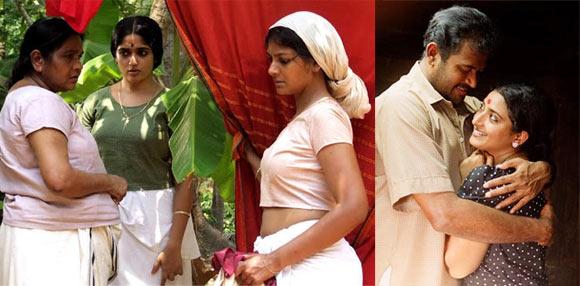
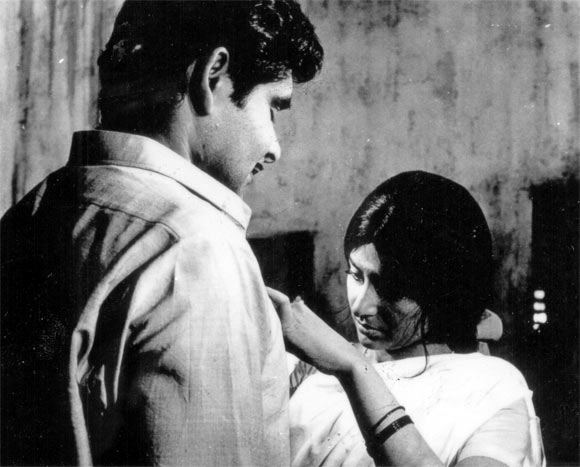
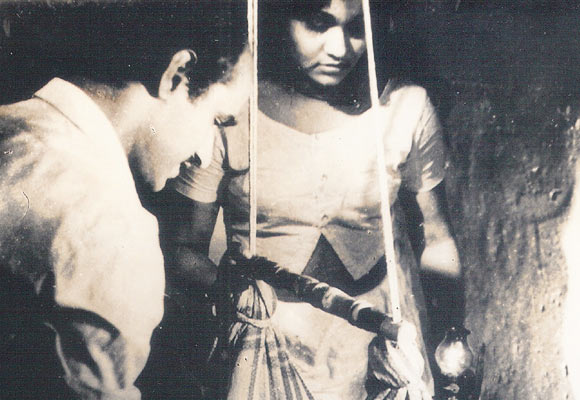
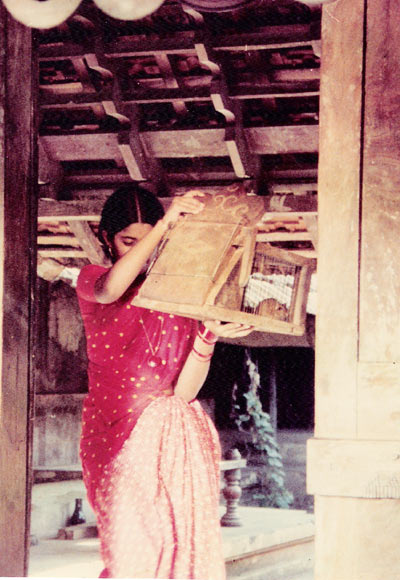
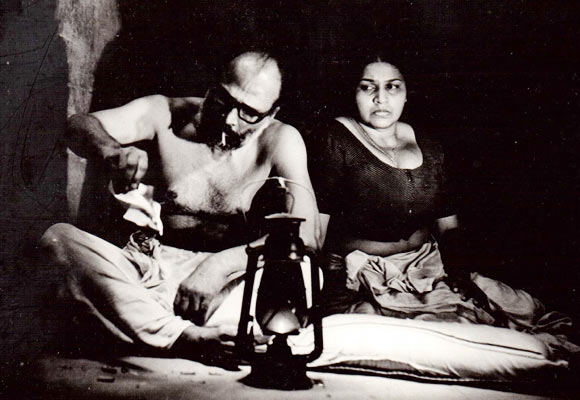
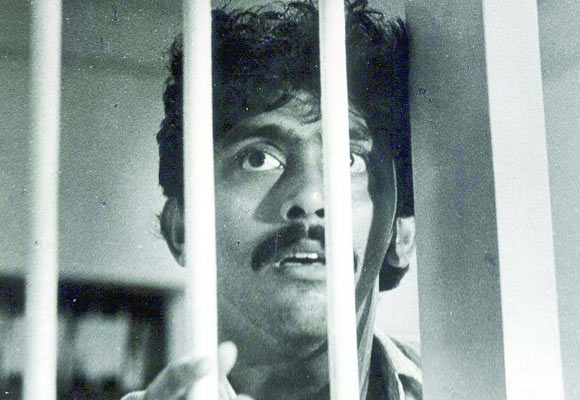
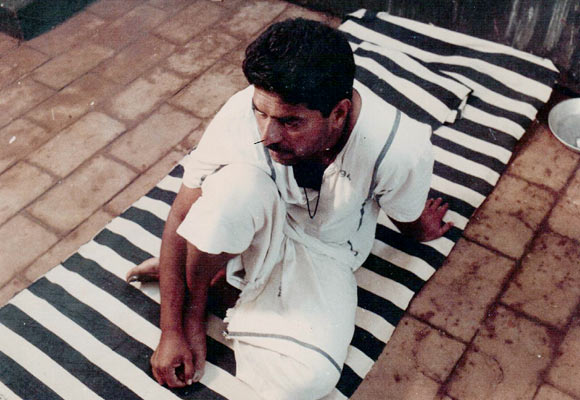

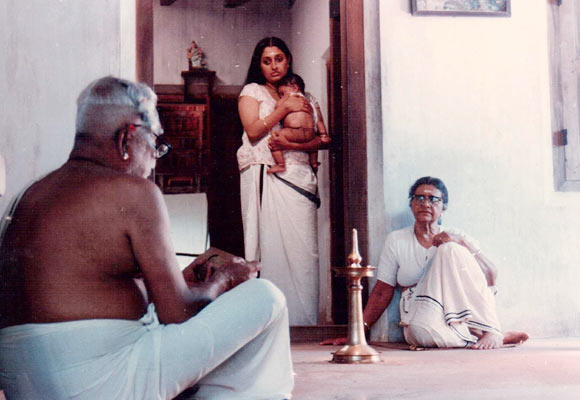
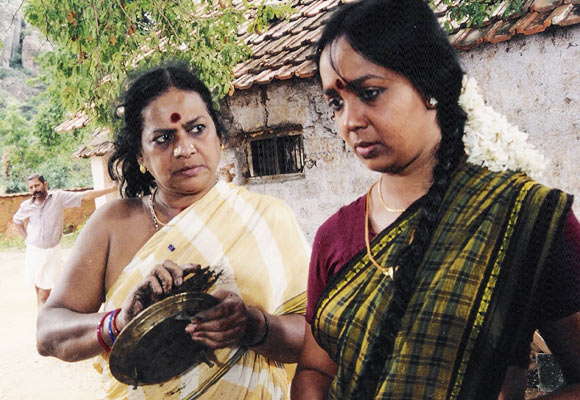
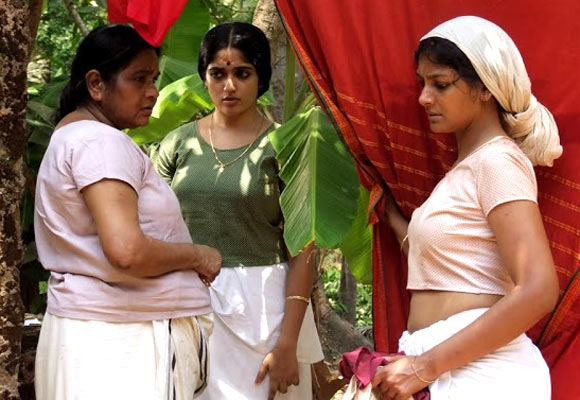
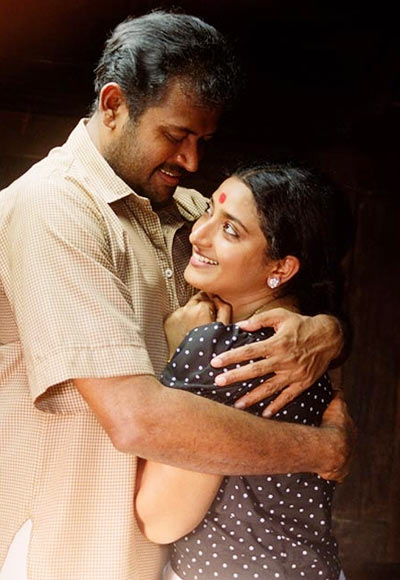
Comment
article